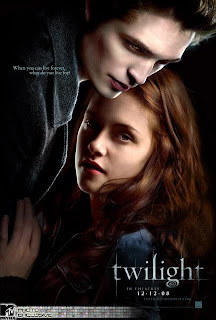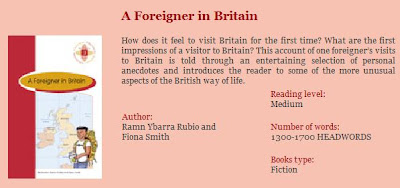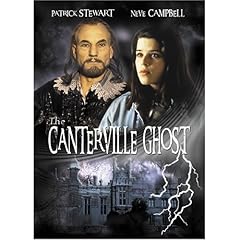.
Thursday 29 January 2009
Sunday 25 January 2009
Twilight
 Lately, everyone has been going Twilight crazy, mainly teenagers. Twilight definitely has made a strong fan base with teenage girls worldwide. In fact, some of my students are really fascinated by the film, specially by Robert Pattinson (Edward Cullen).
Lately, everyone has been going Twilight crazy, mainly teenagers. Twilight definitely has made a strong fan base with teenage girls worldwide. In fact, some of my students are really fascinated by the film, specially by Robert Pattinson (Edward Cullen).Critically acclaimed director Catherine Hardwicke brings to life this modern, visual, and visceral Romeo & Juliet story of the ultimate forbidden love affair - between vampire and mortal.
Source and more information: Twilight: The Official Movie Site
Saturday 24 January 2009
Reader 1st Bachillerato

Friday 23 January 2009
School Day of Non-violence and Peace, 30th January

DENIP: School Day of Non-violence and Peace
1. The "School Day of Non-violence and Peace" (DENIP), founded in 1964 and also known as World or International Day of Non-violence and Peace, is a pioneering, non-state, non-governmental, non-official, independent, free and voluntary initiative of Non-violent and Pacifying Education, which is now practised in schools all over the world and in which centres of education, teachers and students of all levels and from all countries are invited to take part.
2. It advocates a permanent education in and for harmony, tolerance, solidarity, respect for human rights, non-violence and peace.
3. It is observed on January 30 or thereabouts every year, on the anniversary of the death of Mahatma Gandhi. In countries with a Southern Hemisphere school calendar, it can be observed on March 30 or thereabouts.
4. Its basic message is: "Universal Love, Non-violence and Peace. Universal Love is better than egoism, Non-violence is better than violence, amd Peace is better than war".
5. The method of teaching this activity of education in values should be one of experiences and it can be freely applied in each centre of education according to its own teaching style.
6. Friends of DENIP are those persons who, by accepting the spiritual, individual and social supremacy of universal love, non-violence, tolerance, solidarity, respect for human rights and peace above their opposites, advocate the diffusion of the principles which inspired the day.
Llorenç Vidal
Founder of DENP
English translation by the "Majorca Daily Bulletin" (Majorca).
Source: http://es.geocities.com/kirigirisu2002/denip_abstract.html
Now I encourage you to watch, read and listen to this song: Heal the world.
"Heal the World" is a song featured on Michael Jackson's hit album, Dangerous, released in 1991. The music video features children living in countries suffering from unrest.
In a 2001 Internet chat with fans, Jackson said "Heal the World" is the song he is most proud to have created. He also created the Heal the World Foundation, a charitable organization which was designed to improve the lives of children. The organization was also meant to teach said children about how to help others. (From the Wikipedia)
Tuesday 20 January 2009
Barack Obama takes 44th Presidential Oath

The swearing-in of the President of the United States occurs upon the commencement of a new term of a President of the United States. The United States Constitution mandates that the President make the following oath or affirmation before he or she can "enter on the Execution" of the office of the presidency:
I do solemnly swear (or affirm) that I will faithfully execute the Office of President of the United States, and will to the best of my Ability, preserve, protect and defend the Constitution of the United States.
The newly elected or re-elected President traditionally adds "so help me God" to the constitutionally mandated statement.
The theme of Obama's Inauguration is taken from a line in Lincoln's Gettysburg Address: "A New Birth of Freedom." "A New Birth of Freedom" commemorates the 200th anniversary of Abraham Lincoln's birth. The words, echoing across 200 years from Abraham Lincoln's Gettysburg address, express Lincoln's hope that the sacrifice of those who died to preserve the United States would lead to "a new birth of freedom" for the nation. Obama took his oath on the same Bible Abraham Lincoln used at his 1861 inauguration, when he proclaimed the end of slavery.
Monday 19 January 2009
Some Famous English Quotes II
“The love that lasts the longest is the love that is never
returned.”
William Somerset Maugham
“Listen to many, speak to a few.”
William Shakespeare
“Do all the good you can,
By all the means you can,
In all the ways you can,
In all the places you can,
At all the times you can,
To all the people you can,
As long as ever you can.”
John Wesley
“What we do for ourselves dies with us. What we do for others and the world remains and is immortal.”
Albert Pine
“We are all geniuses up to the age of ten.”
Aldous Huxley
“Smiles form the channels of a future tear.”
Lord Byron
Sunday 18 January 2009
Relative clauses

A defining relative clause gives essential information about the noun or noun phrase it modifies, without which the sentence wouldn't make sense as the listener or reader would not be able to identify the noun in the sentence:
The book that I lent you is my favourite. (It is this particular book, not another one).
A non-defining relative clause gives extra information about a noun or noun phrase and has commas at both ends:
Mary Jones, who is my best friend, is coming to the party tonight. (the relative clause is not essential here).
Explanation in English.
Explanation in Spanish.
Exercises on Relative Clauses (English Gramar Online)
Relative Pronouns and Relative Adverbs
Exercise on Relative Pronouns Level: elementary
Subject Pronouns or Object Pronouns? Level: lower intermediate
Relative Pronouns – Necessary or not? Level: lower intermediate
Relative Pronouns – Necessary or not? Level: upper intermediate
Relative Adverbs Level: intermediate
Relative Pronouns in the Text „Stonehenge“ (who/which) Level: elementary
Relative Clauses and Contact Clauses (without the relative pronoun)
Relative Clauses - Formation Level: elementary
Contact Clauses Level: lower intermediate
Definitions with Relative Clauses Level: intermediate
Relative Clauses - defining or non-defining? Level: upper intermediate
Non-Defining Relative Clauses Level: upper intermediate
Forming Relative Clauses - defining and non-defining Level: upper intermediate
Relative Clauses in the Text „San Francisco“ Level: elementary
Tests
Relative Clauses: Level 1 • Level 2 • Level 3 • Level 4
Sunday 11 January 2009
The Canterville Ghost, by Oscar Wilde
 "The Canterville Ghost" is a popular short story by Oscar Wilde, widely adapted for the screen and stage. It was the first of Wilde's stories to be published, appearing serially in the magazine Court and Society Review in 1887. It was later included in a collection of short stories entitled Lord Arthur Savile’s Crime and Other Stories in 1891.
"The Canterville Ghost" is a popular short story by Oscar Wilde, widely adapted for the screen and stage. It was the first of Wilde's stories to be published, appearing serially in the magazine Court and Society Review in 1887. It was later included in a collection of short stories entitled Lord Arthur Savile’s Crime and Other Stories in 1891.Oscar Fingal O'Flahertie Wills Wilde (16 October 1854 – 30 November 1900) was an Irish playwright, poet and author of numerous short stories and one novel. Known for his biting wit, he became one of the most successful playwrights of the late Victorian era in London, and one of the greatest celebrities of his day. Several of his plays continue to be widely performed, especially The Importance of Being Earnest. As the result of a widely covered series of trials, Wilde suffered a dramatic downfall and was imprisoned for two years hard labour after being convicted of "gross indecency" with other men. After Wilde was released from prison he set sail for Dieppe by the night ferry. He never returned to Ireland or Britain. (Source: Wikipedia)
Saturday 10 January 2009
Tuesday 6 January 2009
The Three Wise Men
 In Spain, the tradition of gift giving at Christmas is particularly special for children. They are the ones who await most eagerly the arrival of the Three Wise Men (Melchoir, Caspar and Balthazar), who come in through the windows house by house, sharing out presents in just one night. They are not the only ones to have a good time, however. Grown-ups cannot help becoming infected by their happiness during the preparations for the big day: 6 January. Sharing the exciting wait with them is a gift of love and emotion. This Christmas tradition fills the little ones' days with unforgettable magic.
In Spain, the tradition of gift giving at Christmas is particularly special for children. They are the ones who await most eagerly the arrival of the Three Wise Men (Melchoir, Caspar and Balthazar), who come in through the windows house by house, sharing out presents in just one night. They are not the only ones to have a good time, however. Grown-ups cannot help becoming infected by their happiness during the preparations for the big day: 6 January. Sharing the exciting wait with them is a gift of love and emotion. This Christmas tradition fills the little ones' days with unforgettable magic. First of all, children have to write their letter to the Three Wise Men, saying which presents they would like them to bring. After this comes one of the favourite moments: giving the letter in. They can either give the letter to the Wise Men personally when they arrive "officially" on 5 January, or to the emissaries and royal postmen to be found in the centre of all Spanish towns a few days before. They will be asked if they have been good at school and at home, because naughty children get left coal instead of presents. Although, in truth, it is a "sweet" punishment because the coal is made of sugar.
When the long-awaited day finally arrives, the whole family come out onto the street to receive the Wise Men. They arrive with a traditional parade, riding through the streets on their camels, loaded with presents and accompanied by royal pages who throw sweets and goodies to the children. One by one, the delightful floats pass by, decorated with bright colours and inspired in popular children's characters. The little ones will love them. All the while, a band brings joy to the celebration with Christmas songs and carols. The spectacle of joy, light and colour, combined with the smiles of the children, make for a feeling of complete happiness. There are parades celebrated all over Spain on this day. Each has its own particular style, depending on where you are. In Barcelona, for example, the Three Wise Men arrive by sea, while in the village of Alarilla, in Guadalajara, they are daring enough to arrive by hang-glider and paraglider. Or why not see the parade in Alcoi, Alicante, the oldest in Spain?
After the parade, children go to bed early but excited, to wait for Melchoir, Caspar and Balthazar to come in through the window and leave presents in their shoes. First they should put water and bread on the windowsill for the camels to eat and drink while the Wise Men do their work. Come and experience Christmas in Spain and discover this magical tradition that will fill your children with joy. Let them get carried away by all the moments of joy, surprise and tender happiness to be found in our country at this festive time. Now is your chance. Make the most of it.
You can listen to this text on the link provided. Source and listening practice: Learn through travel.











